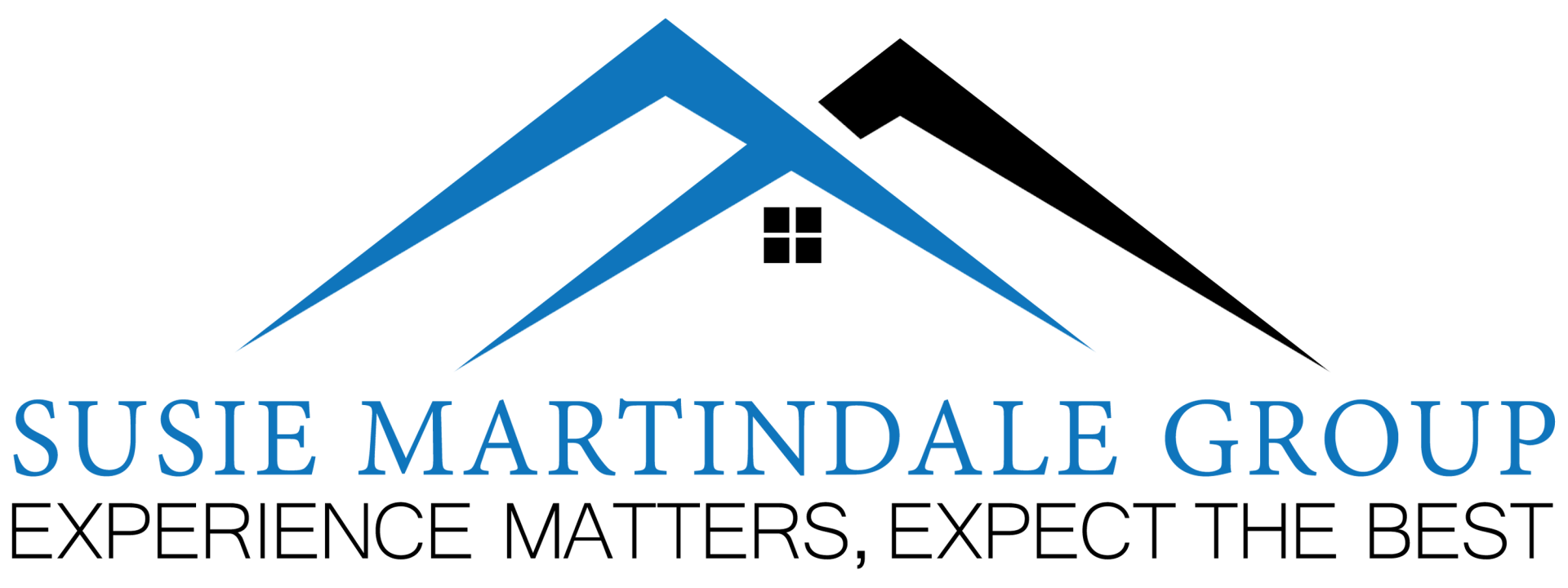Real Estate Expert Tips for Homebuyers
Buying a home is a significant milestone. It's a process filled with excitement, anticipation, and sometimes, a bit of anxiety.
Navigating the real estate market can be complex. Especially for first-time homebuyers, the journey can seem daunting.
This article aims to simplify that journey. We'll provide expert real estate tips for homebuyers, focusing on the Salt Lake City real estate market.
We'll guide you through the process, from understanding the market to closing the deal. We'll share strategies to make informed decisions and increase your confidence.
Whether you're a first-time buyer or looking to refine your real estate strategies, this guide is for you. We'll cover everything from budgeting to negotiating, from inspections to final walkthroughs.
By the end of this article, you'll be better equipped to navigate the home buying process. You'll have a clearer understanding of what to expect and how to handle it.
So, let's embark on this journey together. Let's turn your dream of homeownership into a reality.

Understanding the Salt Lake City Real Estate Market
Salt Lake City offers unique opportunities and challenges for homebuyers. It's essential to grasp the local market dynamics before making any purchase decisions.
This city has seen steady growth in recent years. People are drawn to its vibrant community and breathtaking scenery. This growth impacts the housing market, often increasing demand and prices.
Understanding these trends can make you a more informed buyer. Research is crucial. Look at recent sale prices and how quickly homes sell. This will give you insights into the current state of the market.
Another aspect to consider is the type of neighborhood you're interested in. Salt Lake City is known for its diverse communities, each offering something unique. From the bustling downtown to quiet suburbs, options abound.
Here are a few factors to keep in mind when researching neighborhoods:
- Proximity to schools, work, and amenities
- The safety and crime rate of the area
- Future development and zoning plans
Keeping an eye on market trends and zoning changes can help you identify up-and-coming neighborhoods. Such areas might offer better investment prospects. It’s always wise to think about the long-term potential of your property investment.
Engage with local real estate professionals. They can provide first-hand insights into Salt Lake City's real estate nuances. This knowledge is invaluable, ensuring you make decisions based on expertise rather than assumptions.
Preparing Your Finances for Home Buying
Buying a home is a significant financial undertaking. Preparation is key to ensuring a smooth process.
Start by evaluating your current financial situation. Look closely at your income, expenses, and debts. Understanding your overall financial health will guide you in determining what you can afford.
A home buying budget is crucial. This should include not only the purchase price but also closing costs and ongoing expenses. Consider property taxes, maintenance, and homeowners insurance as part of your monthly budget.
Here are steps to financially prepare for home buying:
- Assess your current debt and income ratio
- Set a realistic savings goal for the down payment
- Create a budget that includes all housing expenses
- Analyze your emergency fund to ensure it's sufficient
Additionally, think about your long-term financial goals. Ensure that buying a home aligns with these. This perspective helps you choose a property that suits not only your current needs but future aspirations too.
Consulting with a financial advisor can be beneficial. They can provide tailored advice to make sure your finances are in order. This guidance can help you feel more confident in your buying decisions.
The Importance of Mortgage Pre-Approval
Before beginning your home search, get pre-approved for a mortgage. Pre-approval involves a lender evaluating your financial situation. They provide a letter detailing the loan amount you're eligible for.
This step is crucial for several reasons. First, it establishes your budget. Knowing how much you can borrow helps narrow your home search to properties you can afford.
Secondly, pre-approval makes you an appealing buyer. Sellers take pre-approved buyers more seriously. It suggests you are ready to move forward financially. This can be advantageous in competitive markets like Salt Lake City.
Finally, pre-approval can speed up the closing process. With your finances verified in advance, moving to the offer stage becomes smoother. This efficiency can be the difference between securing your dream home and losing it to another buyer.
Building and Maintaining a Strong Credit Score
Your credit score plays a vital role in home buying. It influences the mortgage rates you qualify for. A higher score generally means better rates and terms, saving you money over time.
Start by reviewing your credit report. Ensure all the information is accurate. Dispute any errors you find, as they can impact your score. Monitor your credit regularly to track your progress.
Pay all your bills on time. This step cannot be stressed enough. Late payments can harm your credit more than anything else. Consistency is key to maintaining a healthy score.
Consider reducing your debt load. High outstanding debt can negatively affect your credit score. Reducing your credit card balances can enhance your score and improve your financial standing. Maintaining a low debt-to-credit ratio is essential.
Patience and diligence in managing your credit can open doors to better mortgage options. A strong credit score not only benefits the home-buying process but your overall financial well-being.
Finding the Right Real Estate Agent
A skilled real estate agent is an invaluable asset. They guide you through complex decisions and help find a home that fits your needs. Their expertise can make a daunting process manageable and even enjoyable.
Start by asking for recommendations from friends or family. Personal referrals often lead to trustworthy professionals with a proven track record. Another useful approach is researching online reviews and testimonials. These can provide insights into the agent's strengths and weaknesses.
Interview a few potential agents. This step allows you to assess their experience and communication style. Discuss their familiarity with the Salt Lake City real estate market. An agent well-versed in local conditions will be more adept at finding the right properties and negotiating effectively.
Ensure the agent is a good listener. They should understand your needs and preferences and respect your budget constraints. Effective communication between you and your real estate agent is critical. This relationship is based on trust and mutual respect, which are essential for successful cooperation.
Choosing the right agent can shape your home buying experience. Take the time to find someone you connect with, who understands your goals, and who is committed to helping you achieve them. This partnership can ultimately lead to finding your ideal home.
Budgeting and Financial Strategies for Homebuyers
Creating a solid budget is essential for homebuyers. It serves as a financial roadmap during your search, helping you avoid overspending. Planning upfront can save potential headaches later.
Start by analyzing your current financial situation. Consider your income, expenses, and savings. Understanding where you stand financially will inform your home buying decisions.
One effective budgeting strategy is to list your financial commitments. These might include existing debts, monthly expenses, and any savings goals. Prioritize these commitments based on necessity and relevance.
Investing in the right home also means considering future costs. These could include maintenance, taxes, and utilities. Planning for these expenses can prevent financial strain after moving.
Here's a markdown list of financial strategies:
- Set a Realistic Purchase Price: Base it on your budget, not on what you qualify for.
- Consider Additional Costs: Taxes, insurance, and potential repairs should be accounted for.
- Build an Emergency Fund: Set aside funds for unexpected home-related expenses.
- Seek Professional Advice: Consider a financial advisor for personalized insights.
Remember that a detailed budget is crucial in the home buying process. It helps guide your decisions and keeps your financial health intact. Planning and sticking to that plan lays the foundation for a successful purchase.
Determining Your Budget and Sticking to It
Determining your budget is a cornerstone in the home buying guide. Begin by calculating how much you can afford. Use online calculators to get an idea based on your income and debts.
Decide on a comfortable monthly mortgage payment. This should include taxes and insurance. Avoid stretching your finances thin to prioritize a lifestyle you can maintain.
Sticking to your budget requires discipline. Keep a detailed record of potential purchase expenses. Regularly compare these with your budget to ensure you're staying on track.
Communicate your budget constraints with your real estate agent. This ensures they only show you properties within your budget. It prevents unnecessary temptations and helps streamline the search process.
Saving for a Down Payment
Saving for a down payment is a critical step. It's often the largest initial expenditure in the home buying process. Generally, aiming for 20% of the home’s price is a solid goal.
Start by setting up a dedicated savings account. This creates a clear separation from your regular spending funds. Automate transfers to this account to build the habit of saving consistently.
Cutting discretionary expenses can accelerate savings growth. Consider dining out less or delaying vacations. These small sacrifices add up over time, bringing you closer to your down payment goal.
Explore programs designed to assist first-time buyers. Many offer grants or loan options with lower down payment requirements. These can be valuable resources, reducing the burden on your savings.
With careful planning, you'll accumulate the necessary funds. Staying disciplined and using helpful resources will facilitate reaching your down payment objectives. This financial preparedness opens the door to confident homeownership.
The Home Search: Location, Amenities, and Long-Term Value
Choosing the right location is pivotal in your home buying journey. Location affects property value and quality of life. A desirable area can enhance your investment over time.
Consider the amenities a neighborhood offers. Access to parks, schools, and shops adds convenience. These can also boost your satisfaction and the property's appeal to future buyers.
Evaluate the community vibe. Visit at different times to get a sense of the neighborhood's character. Look for signs of community engagement and pride.
When searching for a home, think long-term. Real estate is a lasting investment. Ensure the location aligns with your future goals, like family needs or work requirements.
Create a priority list of must-have features. Here’s a markdown list to guide your search:
- Proximity to Work and School: Minimize commute times for daily convenience.
- Access to Public Transportation: Important for urban areas and connectivity.
- Neighborhood Safety: Research crime rates and community patrols.
- Nearby Recreational Facilities: Parks, gyms, and clubs add lifestyle value.
- Future Development Plans: Projects can boost or decrease future property value.
Selecting a location involves considering both current and potential future benefits. Prioritize what matters most to you. This ensures your chosen property supports both your lifestyle and financial aspirations.
Assessing Neighborhoods and Researching Locations
Assessing neighborhoods starts with practical research. Use online resources to gather data on crime rates and schools. Knowing these metrics gives insight into the area’s suitability.
Visit neighborhoods at different times of day. This helps you get a realistic picture of daily life there. Observing traffic, noise, and activity levels is crucial.
Engage with locals if possible. Conversations can provide insider perspectives on the community. Neighbors often offer honest insights not found in reports or online.
Look into local amenities like parks and shopping centers. Proximity to these can enhance daily convenience. Amenities also impact the area’s desirability and property value over time.
Evaluating Property Potential and Resale Value
Evaluating a property's potential involves more than its immediate appeal. Consider the home's layout and possibilities for future modification or expansion. Flexible designs can add significant future value.
Research recent sales of similar properties nearby. This helps estimate the resale value. Understanding local market trends also informs pricing expectations.
Consider the property's condition. A well-maintained home may require less immediate investment. Conversely, a fixer-upper could gain more value if improvements are made wisely.
Factor in the property's location and neighborhood trends. An up-and-coming area can enhance long-term value. Being mindful of these factors guides smarter purchasing decisions.

The Role of Home Inspections and Negotiations
Home inspections are a crucial part of the buying process. They reveal potential issues that might not be visible during a showing. This step ensures you're fully informed about the property's condition.
A thorough inspection can save you from future headaches. Identifying major repairs before buying can avoid costly surprises. It's an opportunity to assess whether the home is worth the investment.
Negotiations can make or break a deal. This is where your skills can lead to financial savings. Effective negotiation can result in favorable terms and conditions.
Being prepared with market information strengthens your negotiation position. Knowing recent sales prices of similar homes supports your case. Confidence in discussions often leads to better outcomes.
Understanding the Home Inspection Process
The home inspection process involves hiring a professional to assess the property. Inspections typically cover structural integrity, roofing, plumbing, and electrical systems. A comprehensive inspection is key to uncovering any hidden issues.
After receiving the inspection report, review it carefully. Look for major defects or safety concerns. Addressing these issues with the seller can either lead to repairs or price adjustments.
Mastering Negotiation Tactics
To succeed in negotiations, begin with research. Understanding market conditions and property values gives you leverage. It’s essential to recognize when to push and when to compromise.
Communication is crucial. Clearly articulate your concerns and desired outcomes. Approach the discussion with respect and patience, as adversarial tactics might alienate the seller.
Closing the Deal: Contracts, Closing Costs, and Final Walkthroughs
Finalizing a home purchase involves several crucial steps. Each step demands attention and precision. Properly managing these elements ensures a smooth transition to homeownership.
Contracts outline the terms of your purchase. They specify the rights and responsibilities of both buyer and seller. Reading and understanding every clause is essential to avoid future disputes.
Closing costs are often underestimated by buyers. These expenses can significantly impact your budget. It's vital to account for them early in your financial planning.
Final walkthroughs are your last chance to inspect the home. This step confirms that the property is in agreed-upon condition. Identifying any issues now can prevent post-purchase regrets.
Reviewing Contracts and Understanding Closing Costs
Contracts protect both parties in a real estate deal. It's wise to seek legal counsel if you're unclear about any terms. A lawyer can help you comprehend complex legal jargon.
Be prepared for closing costs, which can include fees for various services. These might comprise appraisal fees, title searches, and loan origination fees. Ensure all costs are transparent and justified before proceeding.
The Importance of Title Insurance and Final Walkthroughs
Title insurance safeguards against potential ownership disputes. This protection covers unforeseen claims against your new property. It's an investment in peace of mind.
The final walkthrough is a pivotal moment before closing. Verify that all agreed-upon repairs are complete. Any unresolved issues should be addressed before you sign the final documents.
Additional Considerations for Homebuyers
The journey to owning a home involves various considerations. These factors extend beyond finding the perfect house. Understanding these components can enhance your overall buying strategy.
Market trends fluctuate over time and influence real estate dynamics. Staying informed about these trends can guide your timing decisions. Consideration of market conditions may help you find better opportunities.
Interest rates directly affect your mortgage payments. A slight change in rates can significantly alter your monthly expenses. Thus, keeping an eye on interest rate trends is beneficial.
Your lifestyle and future plans should align with your purchasing decisions. Here’s a quick checklist of additional considerations:
- Evaluate changes in real estate laws.
- Consider eco-friendly home options.
- Assess local infrastructure and amenities.
- Stay informed about future development plans.
The Impact of Market Trends and Interest Rates
Market trends can indicate whether it's a buyer's or seller's market. Understanding these shifts gives you an upper hand. Acting at the right moment can save you money.
Interest rates can change monthly mortgage affordability. Even a small shift impacts long-term costs. It's wise to lock in rates when they are low.
Strategies for First-Time Homebuyers
First-time buyers often face unique challenges. Establishing a clear budget is the foundational step. Sticking to this budget keeps you in control of your financial health.
Learning real estate basics is crucial for newcomers. Attend workshops or seminars to increase your knowledge. These resources offer valuable insights and reduce pitfalls.
Conclusion: Embracing the Home Buying Journey
The path to homeownership is filled with challenges and triumphs. At The Susie Martindale Group in Salt Lake City, Utah, each step is a chance to learn and grow. With our expert guidance and thorough preparation, the experience becomes enriching and rewarding.
Stay informed and organized with The Susie Martindale Group, and you will navigate the process successfully. Remember, patience and persistence are your allies. Embark on this journey with confidence, knowing you are well-prepared by the best real estate company in Salt Lake City. Contact us today to start your path to homeownership with a trusted partner by your side.














